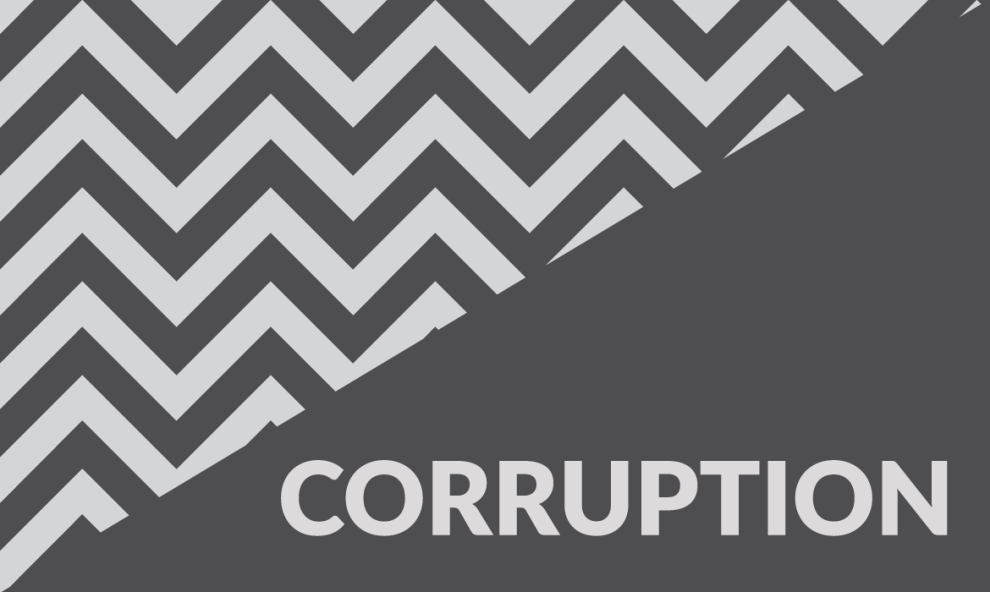The story recounts that Commodore Perry, hero of the War of 1812, coined the phrase “We have met the enemy and he is us”. Something similar could be said of the old PRIist system; it continues, alive and kicking, because it benefits us all or because we believe that it benefits us in some manner. While all Mexicans, from the most modest to the most exalted, have aspirations to improve, the old system was so overwhelming and omnipresent that it affixed itself to the innermost core of our being. The result, visible in all ambits, is that although we consider ourselves modern, something of the old, something that holds us back from changing, continues inside there.
Benefits and privileges, small or large, are always attractive. It might bother us that an individual appropriates the public thoroughfare and later rents it out as a parking lot, but it is very convenient to find somewhere to leave the car when one is hurrying to a dentist appointment. It is easier to talk to someone we know for getting some official procedure taken care of without having to wait in line. All of these small privileges are in reality ways of discriminating against the entire remainder of society. Of course, none of these peccadilloes compares in sum with the abuse represented by the communications monopoly or the multimillion-peso transfers received by a public-sector union, but the concept is exactly the same. All of these are privileges that function at the cost of everyone else. The culture of privilege, of influence, and of rights without a counterclaim constitutes an affront to the country’s development.
The leading question is how we can turn this reality around. History relates that when the Romans finally achieved not only the defeat but also the destruction of the Carthaginians, their most powerful enemy, they thought that their Republic finally was safe and sound. What they did not take care of was themselves: as soon as they finished off the Carthaginians, the Romans themselves began to undermine their own Republic by abandoning its institutions, reducing its freedom, and gnawing away at its prosperity until they ended up in a civil war. We Mexicans are undermining our own viability as an organized society insofar as we play the privileges game, because we are rendering the functioning of a competitive country and a decent society impossible.
To leave the past behind is something easy in concept but difficult in practice, especially at the individual level, when a person or a family decides to break with these mores in order to attempt to live within a commensurate world in the eyes of the law. Many of us have made attempts in this regard. I remember two specific cases: on arriving to renew his driver’s license, an acquaintance of mine found himself with the receptionist who immediately asked him if he wanted normal or express service. Not understanding the nature of the question, my friend opted for normal. Hours later, after observing that the expeditious service involved only a few minutes, he finally succumbed: the receptionist alone could not change the system. The opposite occurred with a Mexican entrepreneur who attempted to carry out a tax formality in the U.S. His first instinct, as a Mexican, was to seek out some contact who could aid him in expediting his request. First he spoke by phone with an official at the U.S. Embassy in Mexico, who told him that he was unable to help him, but that he should go directly to the relevant office. Irritated, the businessman hung up the phone and began to speak with other persons in the U.S. One of these, a lawyer, told him that it was not necessary to ask for help but, more importantly, that on doing so he could be committing a crime. Incredulous and fearful, he went to the respective office and within fifteen minutes, without anyone’s help, he finished his business. The contrast between the two ways of functioning could not be greater. Here, everything is designed so that someone is benefited –from receiving a “modest” tip to being consigned an entire market-, while there, the system is user- and citizen-friendly.
One of the paradoxes of the system that we inherited is that it has become much more intricate from when the PRI was defeated in 2000. Before that, there were mechanisms, not frequently employed, to limit some of the worst excesses (as occurred with the “quinazo” –read newly inducted President’s Carlos Salinas’s jailing of PRI coreligionist and PEMEX syndicate kingpin Joaquín Hernández-Galicia “La Quina”), but these were never conceived of to construct a more functional and fair nation. With the dispersion of power that we have observed, there does not appear, under the current circumstances, to be a human power that allows for limiting the abuse that citizens suffer at the hand of bureaucrats, politicians, unions, business, and other “de facto” powers. So then, what it to be done? It would be easy to seek out the guilty –who did, or did not do, what- but this would not help us. If one peruses the newspapers or listens to the news, there’s no dearth of guilty parties. The problem is that such an approach does not change the reality.
It would be more useful to look for ways of going about whittling the system down that permits so much abuse and excess. There are two great lines that the citizenry can begin to voice in this direction: action and organization. As to actions, we could begin by saying NO, each of us at their own measure, to that world of privilege and its concomitant abuses. Simple things such as paying a fine instead of a bribe, parking, even if at a distance, so as not to promote ”rent” of the public way, standing in line when necessary, refusing to purchase something without the value added tax. A quixotic attitude may sound artless (and in many senses it is), except if it catches fire. With such an intricate system and an ensnarled structure of beneficiaries, it is difficult to believe that one person or one family can transform a nation.
The only way to effect a change is by creating an organization that little by little adds sufficient numbers of people to create a critical mass and to become a political factor to which the real powers –governmental as well as “de facto”- cannot deny dealing with. A group or family that decides to convene other families who join in with acts of “active resistance” in a situation such as our that of present one, in which we cry ”basta” every time could well spark and precipitate a sea change.
Gandhi instigated the strategy of passive resistance to defeat the colonial enemy. In our case, what is needed is a cogent and vigorous citizenry, willing to comply strictly with the obligations and regulations that life in society exacts. For Mexicans, the alternative is to hope that someone, in the goodness of their heart, will change things from on high, or to begin to do it by ourselves every minute of the day.
The System and I





Comments